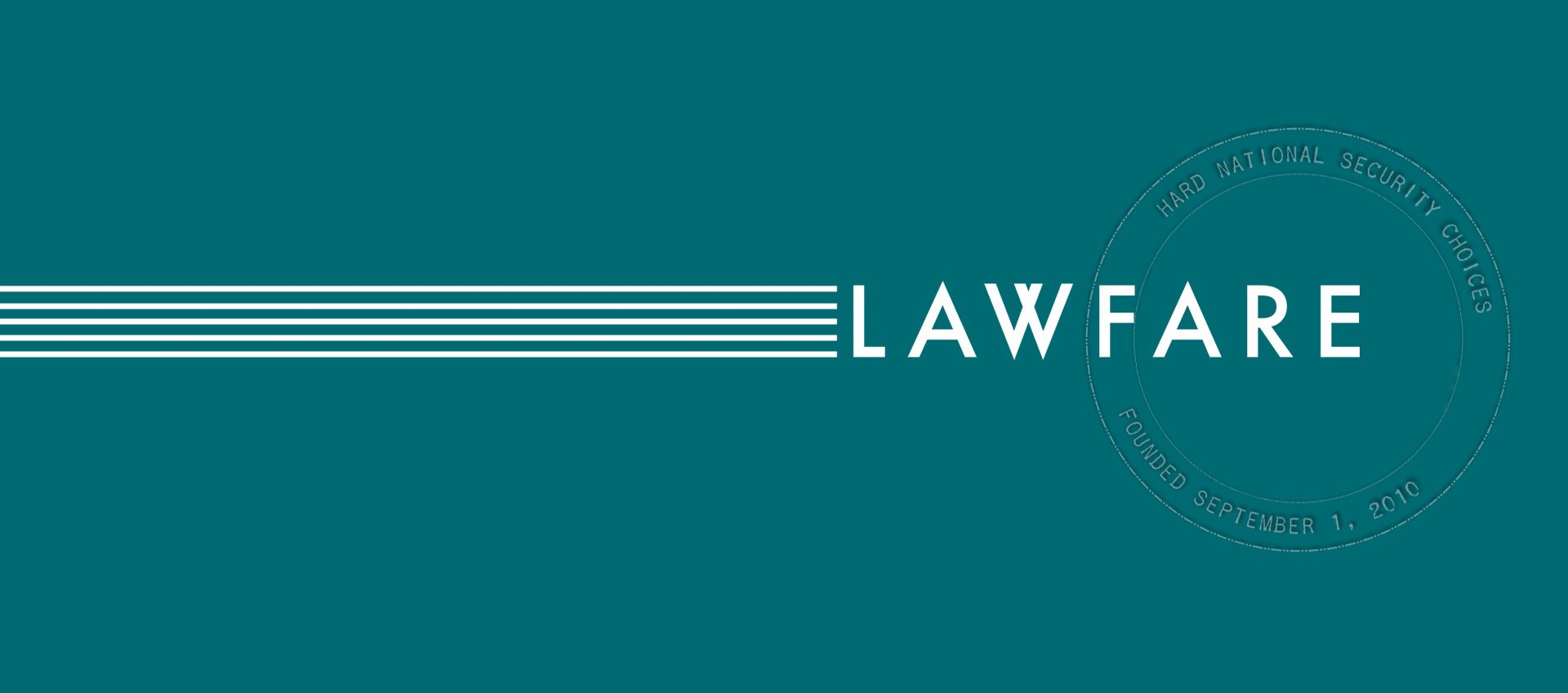Published by The Lawfare Institute
in Cooperation With

Scott R. Anderson, Anna Bower, Saraphin Dhanani, Hyemin Han, Quinta Jurecic, Tyler McBrien, and Benjamin Wittes analyzed the first charges to drop against former President Donald Trump after his Tuesday afternoon arraignment in New York.
On an emergency edition of the Lawfare Podcast, Wittes sat down with Rebecca Roiphe, Jurecic, Bower, and Dhanani to discuss the legal grounds for Trump’s grand jury indictment:
Bower and Wittes identified pivotal moments of Trump’s arraignment in a narrative summary.
Lee Kovarsky analyzed whether federal law would preempt state law on the charges brought by Manhattan District Attorney Alvin Bragg in the New York case against Trump. He concluded that it likely does not.
Katherine Pompilio shared the unsealed indictment of Trump and the statement of facts released by the Manhattan district attorney's office about the case. Trump pleaded not guilty to all 34 felony charges against him. She also shared Bragg's remarks from a press conference held after Trump's arraignment.
John Emmons shared a subpoena issued by House Judiciary Committee Chair Jim Jordan, (R-Ohio) to former New York County Special Assistant District Attorney Mike Pomerantz.
On Rational Security, Anderson and Jurecic were joined by McBrien to discuss the week’s big national security news stories, including the indictment of Trump, the arrest of Wall Street Journal reporter Evan Gershkovich in Russia, Finland’s accession to NATO, and more:
Pompilio shared a decision from a panel for the U.S. Court of Appeals for the District of Columbia Circuit allowing government prosecutors to charge Jan. 6 rioters with corruptly obstructing an official proceeding under 18 U.S.C. § 1512(c)(2).
Avery Schmitz shared a ruling by Delaware Judge Eric M. Davis that will send the Dominion v. Fox News defamation suit to trial.
Alan Rozenshtein, in response to a recent article by Wittes, argued that the relevance of the First Amendment to AI regulation does not demonstrate free speech rights on behalf of language models or even their creators, and instead follows a logic similar to the First Amendment protections enjoyed by corporations.
Paul Nelson discussed how cyber vulnerabilities in emerging markets and developing economies (EMDEs) that lack adequate financial and privacy safeguards can harm consumers. Nelson considered how certain consumer protection mechanisms and foreign assistance could mitigate harm in EMDEs.
Wittes sat down with Alex Stamos, Nicole Perlroth, and Dave Willner on the Lawfare Podcast to discuss applications of AI toward cybersecurity, challenges posed by generative AI, and how users abuse large language models:
Kubo Mačák and Mauro Vignati considered the detriments of integrating civilians into cyber operations and how international humanitarian law protects innocent parties.
Michael Depp analyzed the State Department’s Political Declaration of Responsible Military Use of Artificial Intelligence and Autonomy, released earlier this year. He argued that with continued support, the declaration could represent a small but significant step towards consensus-building for an international normative framework on AI.
Richard J. Harknett, Michael P. Fischerkeller, and Emily O. Goldman discussed the contents of the United Kingdom’s newly-released cybersecurity framework, and particularly the document’s strategic outlook, operational guidelines, and proposed cyber strategic goals. The authors highlighted similarities with the Biden administration’s strategy.
Minna Ålander discussed the strategic posturing of Nordic countries that have demonstrated interest in joining the North Atlantic Treaty Organization and their imperative for cooperation toward mutual security goals.
On the Lawfare Podcast, David Priess sat down with Henri Vanhanen and Ålander to discuss Finland’s long road to NATO membership, what Finland brings to the alliance, and what the alliance can do for Finland:
In a recording of the Brookings Institution’s annual Breyer Lecture on International Law, shared on the Lawfare Podcast, Oona Hathaway argued that international law and institutions have demonstrated surprising robustness in response to Russia’s invasion of Ukraine, and may emerge from the war stronger than before. The lecture is followed by a question and answer session with Constanze Stelzenmüller, and then a panel discussion moderated by Anderson. Panelists included Hathaway, Rosa Brooks, Karin Landgren, and Martin Kimani:
Anoush Baghdassarian analyzed the International Court of Justice’s recent order to Azerbaijan to end its ongoing blockade of the Lachin Corridor in response to a request by Armenia.
Pompilio shared the Defense Department’s 12-page summary of its review of the 2021 U.S. withdrawal from Afghanistan.
In the latest installment of Lawfare’s foreign policy essay series, Gigi Kwik Gronvall weighed the possible origins of the coronavirus outbreak, and argued that animal-to-human transmission was the most likely explanation for its proliferation.
Sara Harmouch warned of a false sense of security regarding the danger posed by Al-Qaeda and its affiliates amid degraded intelligence-gathering abilities after the U.S. withdrawal from Afghanistan, and stressed the importance of a deep understanding of Al-Qaeda’s ideology, strategy, and structure.
On Chatter, Priess sat down with Laura Henry to discuss the history of environmentalism in Russia, and the state of the movement today. They discussed Henry’s research on environmentalism in the Russian federation beginning in 1991, the roots of Soviet environmentalism, how the movement changed under Boris Yeltsin, the impact of the invasion of Ukraine, and more:
And on the Lawfare Podcast, David Kris and Bryan Cunningham sat down with Rob Joyce to discuss his work at the National Security Agency, cyber threats posed by China, public-private partnerships toward cybersecurity, and more:
And that was the week that was.




